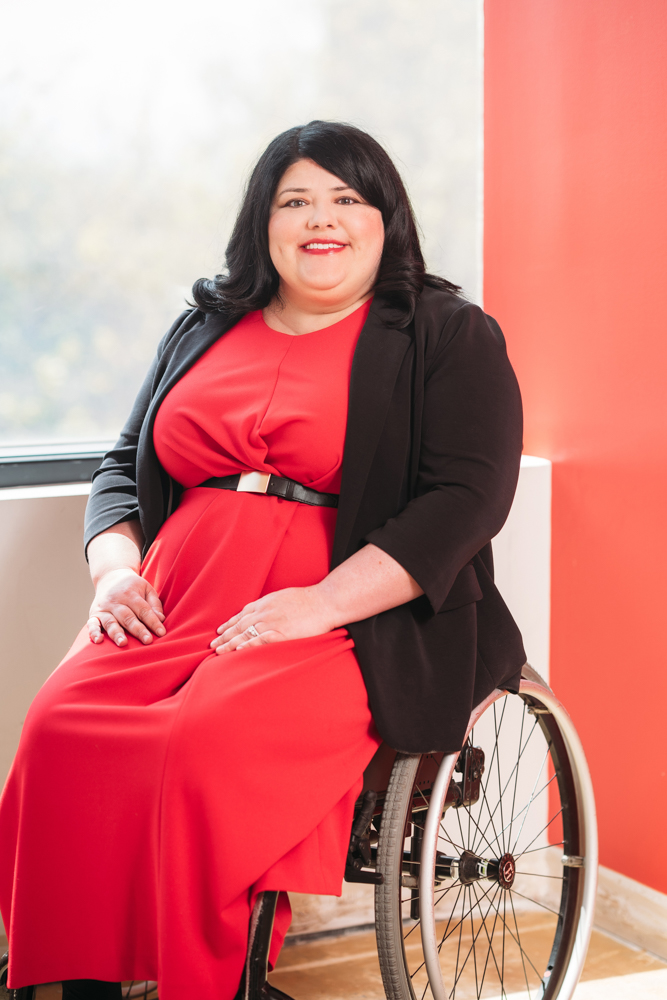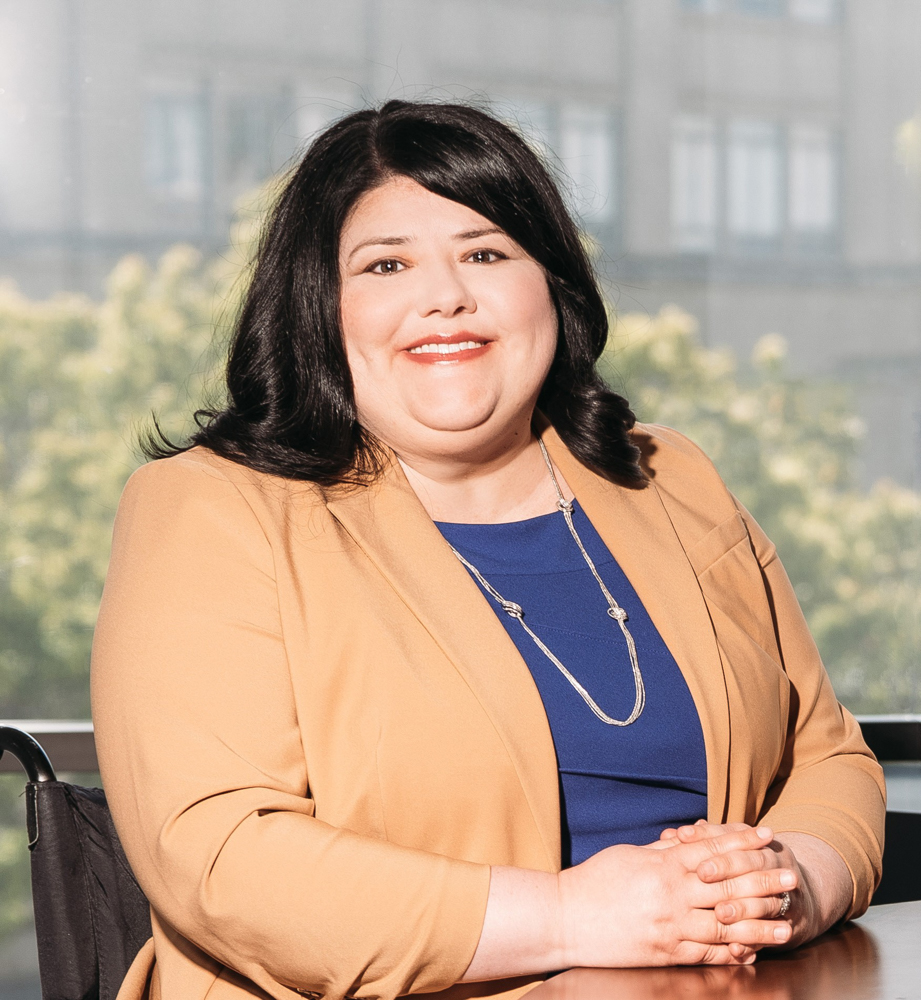Rebecca Williford’s ’09 journey to becoming president and CEO of Disability Rights Advocates (DRA) began unexpectedly during her teenage years in Rocky Mount, N.C. A year-round competitive swimmer, Williford’s life took a dramatic turn when she developed a neurological disorder called dysautonomia. Suddenly, she found herself navigating a world of medical appointments, hospitalization, and missed school days, eventually leading to her using a wheelchair.
This experience thrust Williford into a new universe she had not known existed. As she grappled with her own challenges, she met other teenagers facing similar situations. Together, they wrestled with questions of how to reinvent themselves, find support they needed, and how to access necessities like school, housing, and transportation.

“Nobody told me about disability rights or that disability rights are part of civil rights,” Williford reflects. “You’re just trying to sort of get through that experience.”
Despite the obstacles, Williford was admitted to the University of North Carolina at Chapel Hill for her undergraduate studies. The University allowed her to defer for a year as she adjusted to her new circumstances. During this time, the spark of advocacy was ignited within her. Witnessing the struggles of the disability community firsthand, Williford realized she could not turn away from the work that needed to be done.
At Carolina, Williford immersed herself in the disability community. She began to embrace her disability as part of her identity and explored many ways to contribute to the community. It was during these formative years that she realized becoming a lawyer would allow her to engage in a range of advocacy and make a significant impact in a segment of society that desperately needed it.
Williford continued her education at UNC School of Law where she solidified her commitment to disability rights. The school proactively addressed her accessibility needs, even building ramps in classrooms to ensure she could access seating areas. This support extended beyond physical accommodations, with career services staff helping her navigate the complexities of discussing disability with potential employers.
During law school, Williford co-founded the National Association of Law Students with Disabilities. What began as a conference organized by the American Bar Association blossomed into a vital community for students facing similar challenges. The organization became a platform for sharing experiences, advocating for necessary accommodations, and supporting one another through the unique challenges of law school with a disability.
Devi Patel, Esq., director of public Interest advising at Carolina Law, reflects on Williford’s impact: “Rebecca Williford’s appointment is a monumental achievement and an inspiration for all our students. Her career, marked by an unwavering dedication to social justice, exemplifies the profound impact commitment and passion can have in the legal field. Our students are fortunate to have such a role model in Rebecca, whose journey from postgraduate fellow to executive director of a national nonprofit organization highlights the boundless possibilities for those dedicated to pursuing justice and serving others.”
After graduation, Williford’s path led her to DRA, where she started as a legal fellow. At DRA, she found her calling in high-impact litigation. The organization’s approach of using class action lawsuits and cases aimed at injunctive relief to tackle systemic barriers across various areas – including transportation, health care, education, and technology – resonated deeply with her.
Over the years, Williford has been at the forefront of groundbreaking litigation. She has achieved multiple precedents on matters of first impression, advancing the rights of people with disabilities across the country. Notable cases include a successful class action against New York City for failing to address the needs of people with disabilities in its disaster plans, and a lawsuit that resulted in significant improvements to accessibility in one of the largest county jails in the United States.

Now, as president and CEO of DRA, Williford leads the organization’s work from its offices in Berkeley, New York City, and Chicago. Under her leadership, DRA continues to secure significant victories. They’ve improved emergency preparedness plans for people with disabilities in major cities, reformed mental health policies at universities, and during the worst of the COVID-19 pandemic, their work led to the release of about 60,000 people from ICE custody who were at elevated risk due to disabilities.
Despite these successes, Williford acknowledges the long road ahead. “We’ve been doing this for 30 years, and unfortunately, I think we’re going to be doing it for another 30 years and beyond because there’s so much left to do,” she says.
As she settles into her new role, Williford remains committed to DRA’s mission of dismantling systemic barriers through high-impact legal work. She envisions a future where disability is fully recognized as part of diversity, with disabled individuals represented at every level of government and society.
To law students who aspire to make an impact, Williford offers this advice: “Find community and mentorship. Surround yourself with people who are going to help you dream big and support whatever dreams you have. My passion was advocating for those with disabilities because we imagine things differently, and we’ve got to make other people see that too and bring them along with us. Follow your passions and align yourself with others committed to making our society better.”



